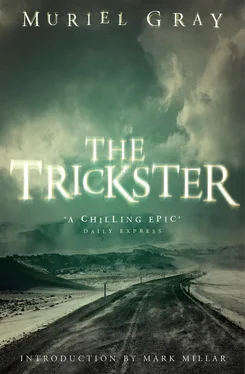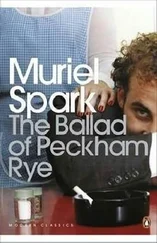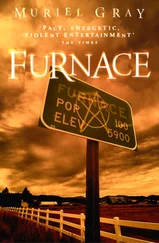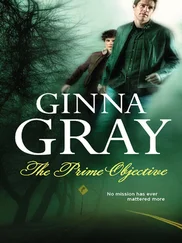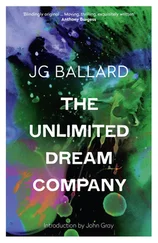Sometimes Sam had to take the staff minibus and pick them up; all part of the menial work as an employee of the Silver Ski Company. Other company guys minded plenty when it was their turn, but Sam kind of liked it. The Aussies were funny. In fact last season he’d gotten real friendly with a guy called Bunny Campbell from Melbourne, who’d invited Sam, Katie and the two kids out to Australia for a vacation. They’d never go. Sam knew that. But he got the occasional card from Bunny and it made him feel cosmopolitan, knowing someone half-way round the world.
Jess loved Bunny, her two-year-old hormones already tingling to the six-foot, golden-tanned antipodean hunk. Occasionally he would come and drag Sam out for a beer after work, sweep Jess into his arms and do a mock tango while Sam fetched his jacket. Sam had watched Katie watching Bunny and preferred not to examine the emotions he felt. Bunny was a good guy. A friend of the family.
The last card had come from Hawaii where Bunny was surfing. There was a picture of a model with big breasts holding a surf board under her arm, which Bunny had defaced by drawing a beard on the girl’s chin. The card had been addressed to Sam Two-Dogs-Fucking-Big-Chief-Skis-Like-A-Cow, and after initial irritation, Sam had laughed and stuck it on the door of the ice-box where all the other postcards lived. He hoped Bunny would be back this season. Sam never thought he’d have friends like that. Big, funny, happening.
White.
That was the truth. White friends. That’s what made him happy. And unhappy at the same time. Real unhappy, remembering what big tanned guys like Bunny used to mean to him when he was young – a time that didn’t get head space – not if Sam Hunt could help it.
Still, winter was good.
Like most Silver residents, the Hunts preferred winter to summer, but whatever the season, it was a bitch of an expensive town.
When the grimy railroad workers had built Silver over a hundred years ago, original name Siding Twenty-three, it was nothing more than a collection of tin and wooden huts in a clearing cut in the pines.
Now, any real estate agent’s window in town would make the ghosts of those guys swoon. Photos of houses were displayed like pornography, their doors open wide, their interiors on show to the casual viewer. And printed below, in discreet blue type, were prices that read like telephone numbers.
Little surprise then that the big houses by the river were mostly holiday homes, owned by rich city people; people who dressed expensively, and seemed built on a different scale, the way the women’s bones were so fine and the men’s shoulders so broad and square.
You could sometimes see them in summer behind their hedges, the way you might glimpse a shy wild animal in the trees, catching them talking and laughing in low voices round rustic garden tables. But in winter the only evidence that they were in residence was the thin blue lines of smoke from their chimneys and the shiny hire cars sitting in the drives.
Since only the seriously rich owned nice property in Silver, the workers who kept the town ticking lived in Stoke, ten miles away, in cheaper accommodation. But the Hunts were lucky. Really lucky. Katie’s family had vacationed in Silver all their life, and when her father bought a holiday house in 1955 it had cost about the same as a good canoe. It was their daughter Katie’s house now, its holiday function forfeited so that their grandchildren could have a house and a home. And it was a great house.
Sam thought for possibly the ten thousandth time what a great house it was as he and Billy pulled into the drive.
It sat high on Oriole Drive, south of main street, looking across the roofs of smaller houses to the mountains that hemmed in Stoke. You could just make out the railroad as it appeared between the pines on the edge of town, but the Trans-Canada highway was hidden, reminding the Hunts of its presence only when an easterly wind brought the distant sound of trucks to their door. Sam had painted the two-storey, detached house powder blue last fall, a choice that Katie had first disputed loudly in the lumber store, then applauded when she was enchanted by the result. Yes, it was a great house, and for the most part its wooden walls echoed to adult laughter, children’s squeals and the good-natured barking of Billy’s husky, Bart.
Bart was out there before the car stopped, bounding round the Toyota, as Light 96 died with the engine and Sam stretched into the back seat to pull out the groceries.
Inside, Katie Hunt chopped tomatoes and silently rehearsed a grouchy reception for her tardy partner, while Jess earnestly dragged crayon across paper at the end of the table.
Sam and Billy had been rehearsing too.
Sam began.
‘Okay. You want an explanation. It was a dinosaur in the supermarket. Billy spotted it first, in the canned vegetable aisle. Took us nearly an hour to fight it off with a roll of kitchen wipe.’
Billy nodded, smiling.
Katie stopped chopping. ‘Aw come on, guys. I needed that stuff light years ago. They’ll be here in an hour and a half.’
Sam put down the brown bags and from behind circled his arms round his small blonde wife, and kissed her ear.
‘Sorry babe.’
She was softening, but not quite soft.
‘Yeah, well sorry’s not going to fix dinner for six.’
‘For sure.’
‘Where were you?’
‘The railroad.’
‘Dice those onions.’
‘Okay.’
Bart, outside, watched through the kitchen window as the Hunt family reunited and got busy. He whined once and lay down in the snowless patch at his kennel door to watch the sun slide away behind the peaks.
‘… okay, so let’s just get this straight …’
There was a communal moan from the other five diners.
‘Come on! This is serious.’
Gerry was leaning forward on the table, using his fork which still speared a tube of pasta, to emphasize the importance of his words.
‘We agree that Bewitched was a subtle statement about the rising threat to men from feminism in sixties America. We agree that Samantha was subduing her massive and powerful superiority over Darren in order to keep him, the man as child, happy, and the home stable. But we can’t agree whether the programme was pro-woman or anti. Am I right?’
Gerry’s wife Ann mumbled through a mouthful of food.
‘Of course it was anti-woman.’
Katie jumped in again.
‘No way. It was the most important piece of feminist TV ever made. It said men are weak, women are strong. Men only just manage by the skin of their teeth to keep women in their place by emotional blackmail.’
Across the table Gerry’s sister Claire threw her husband Marty a look, as if pitying Katie, and moaned again. Gerry waved his fork again, clearly deciding he was chairman of this debate.
‘Right. Right. But by portraying Samantha as an individual only interested in shopping and hoovering, was that itself not undermining the women’s movement? Saying quite categorically, it doesn’t matter how strong women may be, at the end of the day they just want a credit card and cushions that unzip for cleaning?’
Katie shook her head. ‘Totally wrong. Women understood the subtext of that show.’
‘I took it as an anti-woman subtext. Quite clearly, as a matter of fact,’ said Claire, raising an eyebrow.
Sam stood, dropped his napkin on the table and cleared two empty wine bottles from the centre of the debris. ‘Anyone for more wine?’
Marty chucked himself in. ‘You see, there was a lot of angst going down then. Guys didn’t know the score.’
Sam, realizing that grabbing their attention would be as easy as getting Bill Clinton to come and mow his lawn, took the bottle and walked into the kitchen. He opened the ice-box and pulled out another cold Chablis while the voices from the dining room shouted each other down. To the sober man, the drunk is a curious beast. Sam always wondered why alcohol affected people’s volume control. An hour ago they were all talking normally, but now five of them were shouting like they were trying to be heard over a baseball crowd. Sam couldn’t imagine why, but then Sam had never had a drink in his life. Worried about the noise, he sneaked out of the kitchen and upstairs, the bottle still in his hand, to check on the kids.
Читать дальше
